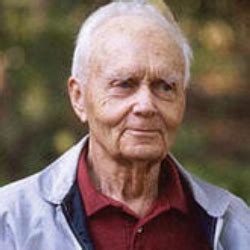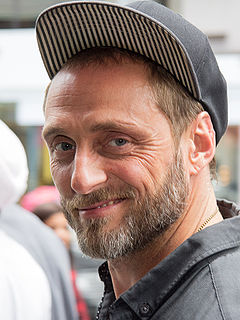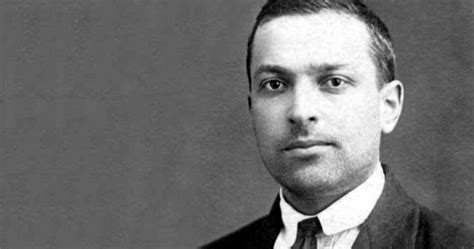A Quote by Marcel Proust
Even the simple act that we call "going to visit a person of our acquaintance" is in part an intellectual act. We fill the physical appearance of the person we see with all the notions we have about him, and in the totality of our impressions about him, these notions play the most important role.
Related Quotes
None of us constitutes a material whole, identical for everyone, which a person has only to go look up as though we were a book of specifications or a last testament; our social personality is a creation of the minds of others. Even the very simple act that we call "seeing a person we know" is in part an intellectual one. We fill the physical appearance of the individual we see with all the notions we have about him, and of the total picture that we form for ourselves, these notions certainly occupy the greater part.
If we want to be a person of integrity, we act as if we have integrity and we will be a person of integrity. If we want to be a person of charity and love, we act as if we have that characteristic and we will be that person. The Savior alluded to this principle when he asked, ‘What manner of men ought ye to be?’ Verily I say unto you, even as I am.' We should strive to become like him by acting as he would act.
If we don't know that there is such a person as God, we don't know the first thing (the most important thing) about ourselves, each other and our world. This is because the most important truths about us and them, is that we have been created by the Lord, and utterly depend upon him for our continued existence.
One of the most horrible, yet most important, discoveries of our age has been that, if you really wish to destroy a person and turn him into an automaton, the surest method is not physical torture, in the strict sense, but simply to keep him awake, i.e., in an existential relation to life without intermission.
It is always useful to think badly about people one has exploited or plans to exploit... No one likes to think of him or herself as a bad person. To treat badly another person whom we consider a reasonable human being creates a tension between act and attitude that demands resolution. We cannot erase what we have done, and to alter our future behavior may not be in our interest. To change our attitude is easier.
When you talk with your mother you are one person; when you go to the bank or you're with your girlfriend you are another person, and that's the way I act. Then for me, it's important that I trust a director and as soon as I do, as soon as I feel comfortable with him, then I pull something out of myself that I didn't even know I had inside of me. That's what I like about this job.
The belief in an external world independent of the perceiving subject is the basis of all natural science. Since, however, sense perception only gives information of this external world or of "physical reality" indirectly, we can only grasp the latter by speculative means. It follows from this that our notions of physical reality can never be final. We must always be ready to change these notions - that is to say, the axiomatic basis of physics - in order to do justice to perceived facts in the most perfect way.






































